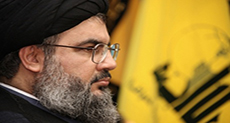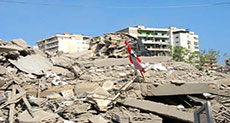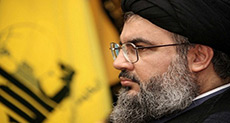Occupation Forces Didn’t Cross Entrances, Resistance Kept Firing Rockets to the Last Moment

It is a story from the memory of the July Divine Victory...
Aita al-Shaab is no longer the town that just holds sand and stones, or a panel of houses lying in the shadows of plateaus, or a history book of places and names. Aita's soil became the matrix of heroes and rebels and the burning cauldron of invaders.
Its stones turned into bullets and rockets, its dwellings became fortresses of jihad and martyrdom, and rostrums of glory.
Every tree and plant in Aita embodies the story of the mujahidin, for they were watered with the blood the martyrs, and transformed Aita into a place that narrates history and maps the borders of geography. Each corner in Aita is proud to tell the stories of the resistance and its victorious battles.
Aita's population experienced the aspects of July's epic story from A to Z, and all those of resistance and triumph.
Aita was familiar with two scenes that became a part of the southern routine: first scene included daily bombings, treacherous assaults, and the forced confinements in the occupied lands, the second one included groups of resistance combatants creeping at night and sheltering under Aita's bushes from the sun during the day, in addition to the attacks of the "lions of Allah" against the occupation forces' posts.
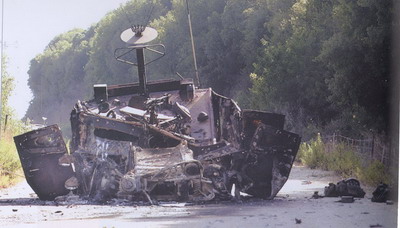
The town's residents spoke of these righteous brave people getting around in the arenas of defiance, and recalled the wails of the enemy's troops while running away, gathering the remains of their dead and wounded, and turning away their backs.
On the morning of 12th of July 2006, at 9 a.m., Aita and its population lived through the details the abduction operation of two "Israeli" soldiers.
Back then the resistance militants executed a hasty military-security operation at al-Hadab hills and the "Ka'eb El Ared" (Land's core) meadows in Khallat Wardé that is planted with olive trees, next to Tabrikha town, whereas the rockets of the resistance were falling on the Zionist post "the monk". The town has its own diaries about the war and the 33-day clashes which both men and women, and all natural forces, dust, water and wind took part in.
Despite the involvement of its elite units, the enemy's forces could not take control Aita, yet the troops remained at the town's entrances and edges, while the militants resisted and continued firing rockets towards the bordering settlements non-stop.
The residents of the town were accustomed to seeing many bordering posts that are surrounded by military barracks controlled by the enemy forces. They were used to see the enemy's daily movements, but the occupation forces intended to change their measures before the aggression to protect these posts, as they intensified the patrols and ambushes at the borders.
On the other hand, resistance militants were, as usual, at high level of uptime, and took the necessary procedures before implementing the operation in anticipation of any response from the enemy. The militants deployed in groups in various bordering spots found on hills and plateaus surrounding Aita al-Shaab, to defend and guard it against any "Israeli" attack.
Capture Operation, Confrontations of day One
Everyone thought that what was happening is one of the resistance operations striking the enemy posts, but soon they realized that what happened is not ordinary. The fighting had begun at al-Khalleh front; exchange of fire expanded, confrontations extended, and "Israeli" artillery shells shelled the town and its surroundings. After a short whole, an "Israeli" Merkava tank advanced towards the "Monk" Hill, and once it reached the right location, the militants of the resistance immediately bombed the loaded explosive which caused its part to spill in all direction, and killed four soldiers
.
The troops kept on trying to remove the tank from its place and retrieve the bodies until late time, but to no avail.
Hizbullah Secretary General Sayyed Hasan Nasrallah showed up that afternoon to announce the name of the abduction operation "The Truthful Promise" that aimed to exchange the 2 "Israeli" soldiers for Lebanese prisoners in the enemy's jails.
Helicopters raided west Aita, and enemy troops tried during the night to pull the tank while being covered with heavy bombardment. The enemy used helicopters, thinking that the resistance won't be able to intercept it, but the resistance's "air defense" force targeted the helicopters and thwarted their mission, so they returned to occupied Palestine without achieving their task. It is noteworthy that this specific tank remained until the end of war, for the enemy did not dare to pull it from the battlefield, after his air and land attempts failed; a group of infantrymen tried to infiltrate in order to pull the casualties from this damaged vehicle, but they were subjected to gun shots that injured some of them.
Ground Incursion
The Zionist leadership had taken the political and military decision to begin the implementation of the plan of aggression, as it pushed forward the elite units of the army that include the special units, Golani, Givati, Nahal brigades and paratroopers. Then, clashes in Aita proceeded .. On the second day, an infantrymen force moved ahead towards the targeted tank, however, the militants managed to strike it, killing and injuring 11 soldiers, as they also bombed the enemy's post on the Monk hill and other border locations.
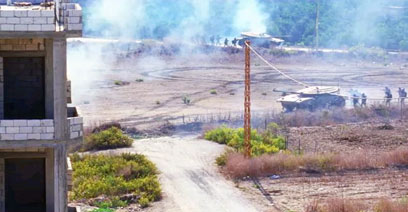
People of the town heard an "Israeli" man from Zarit post threatening them on speakers to leave the town because the "Israeli" army will destroy it, but the residents who were used to these methods of psychological warfare did not respond and remained in the town.
Confrontation and exchange of fire between the enemy and resistance militants continued, until the enemy decided on the 20th day of war to launch a ground invasion operation, after the militants hailed the evacuated settlements, military posts and border barracks with rockets. Some of Aita's population complied with the appeals to leave the town while others insisted to stay and contribute to the victory.
It was evident that the enemy won't settle for bombing the front territories or occupy it, for it sought to prolong the aggression, along with the strategic significance that it can achieve if it could occupy the town that is considered by Hizbullah a major territory on top of its wideness and its strategic location in the region.
The town's occupation, in the viewpoint of the enemy, will beof a negative effect on the resistance when losing an important military and geographic front, which can be exploited by the enemy to accomplish more progress during the ground invasion.
Confrontations and Steadfastness memoirs in Aita
The resistance leadership realized how important it is for the enemy to occupy Aita, so it took several field measures, maintained the highest level of preparedness, and took maximum precautions and readiness measures in anticipation of any sudden clash at any place in the village. Executive practical plans were also set, those that guarantee the permanence of communication lines between the various units and military groups of the resistance, detect and monitor the movements of the enemy troops.
Enemy's infantrymen troops, supported with an armored force, headed towards the edges of Aita. Shortly, they were targeted by the resistance militants who were able to destroy two tanks and a bulldozer, and to push the troops to withdraw towards Khallat Wardeh accompanied with an intense arterially fire cover up. During its withdrawal, the "Israeli" force inspected and combed some houses situated at the borders of the towns, in order to localize in them. The resistance militants raided these houses with heavy weaponry at once, and fought the enemy soldiers at a close distance for several hours. Eventually, The enemy had to back off and leave the place.
Occupation forces rallied in another side to re-invade the town, and dozens of enemy soldiers infiltrated during the clashes into the abo al-Laban plateau on the outskirts of the village. The resistance artillery targeted their assembly point, hit them directly, and foiled their attempt, which lead them to withdraw from the region towards the occupied Palestinian territories.
Occupation forces that failed during the night to enter Aita al-Shaab, resumed their attempts at dawn to progress to the outskirts of the town, but they bumped into the resistance groups deployed in the area that were highly ready to confront any emergency. Fighting resumed at a close range, whilst the "air defense weaponry" of the resistance was able to disable the helicopters' and warplanes' ability that participated in these confrontations.
Resistance fighters were able to destroy a bulldozer, and then the enemy admitted the injury of three soldiers, where one of them was seriously injured. At that time three armored vehicles advanced to support the proceeding force to pull the injured soldiers who were still on the ground. But it was targeted by the militants who used anti-tank guided missile to completely destroy the military force.
On the third day of the ground incursion operation, an "Israeli" force began moving in al-Laban region but it was stuck in an ambush set by the resistance, where a bomb was exploded followed by clashes with various types of weaponry. Enemy forces then had to retreat under cover of artillery fire and smoke, dragging their injured to a rear area by helicopters after several failed and difficult attempts due to the heroic steadfastness of air defense forces.
Another Zionist force tried to invade Aita al-Shaab, but resistance fighters stood in its way and destroyed a Merkava tank at the triangle of Aita-Debel, killing 3 of its soldiers and injuring one more.
Many of Aita's women refused to leave the town, stayed to support the fighters and provided food for them; fighters provided flour and women baked and cooked it with any available food on wood fire, and then transferred it to the resistance fighters despite the tense battles and continuous shelling.
Enemy's troops suffered from dispersion and loss, and total lack of balance, for all their attempts to take control of the town failed. Thus, the enemy's leadership raised the number of troops, and aimed to surround Aita from all the sides, believing that it can besiege the town and eliminate the resistance. Yet, when an enemy force of infantrymen infiltrated at the edges of Abo al-Tawil mountain, a group of resistance fighters blocked them, which confused the enemy troops who shot their fellows by mistake thinking they were the resistance combatants.
On the fifth day of the ground incursion operation, resistance militants chased a group of enemy soldiers who were obliged to hide in a garage outside Dibil village. The militants shelled the garage accurately with anti-tank guided missiles which killed 9 soldiers and injured other ten. Next day, the resistance fighters attacked an Israeli force that tried to advance towards Abo al-Taweel hill, west of Aita al-Shaab, and destroyed a bulldozer and Merkava, killing and injuring their crews. Another Merkava tank tried to pull the destroyed vehicles from the field, and again, resistance fighters hit it with guided missiles and destroyed it.
The heroic confrontation on Aita al-Shaab front resulted in killing 35 "Israeli" soldiers and wounding more than another 65, in addition to destroying 5 B2 Merkava tanks, 3 Hummer vehicles, 3 tankers and 5 bulldozers. Until the last day, and the last moment of "stopping military actions" decision, Aita was still resisting, and rockets were still launched from its regions into the Zionist settlements, while the enemy was bewildered at its entrances, despite that the aerial and ground bombardment did not leave one single wall standing in the village.
Three years after the Israeli war, Aita's men, youth and women still recall stories of heroism stored in their memory to narrate to the future generations the details of an epic story named "Aita al-Shaab"
Source: al-Intiqad, Translated and Edited by moqawama.org

